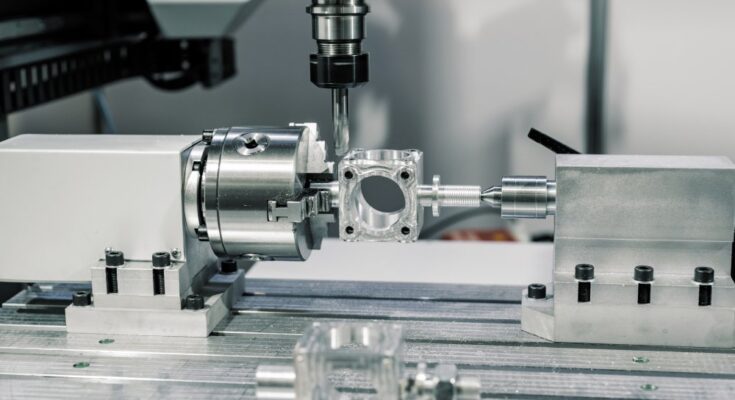Every industry has its unique needs, and the tools and equipment they rely on often determine their level of precision, efficiency, and productivity. Custom tools bridge the gap where standard equipment falls short, enabling businesses to meet specific demands with unmatched accuracy.
From aerospace engineering to medical devices, several industries significantly benefit from such innovations. We’re exploring the industries relying on custom tools and equipment and the importance of customization.
Aerospace Industry and Precision Manufacturing
The aerospace industry heavily depends on precision, where even a millimeter of error can lead to severe consequences. Custom tools are used extensively in manufacturing aircraft components, including engine parts and structural assemblies. Tight tolerances and the creation of complex materials like titanium demand tools tailored to specific manufacturing processes.
For example, aerospace manufacturers frequently use custom equipment for shaping composite materials and conducting precise drilling during aircraft assembly. The benefits of custom drilling tools here are immense, ensuring accuracy and structural integrity in planes that face extreme conditions.
Automotive Innovation Using Custom Equipment
The automotive sector thrives on innovation and precision, and custom tools are essential to uphold such standards. From designing engine components to assembling electric vehicles, every step in the process requires unique tooling. Automakers benefit from custom machining tools specifically adapted to handle diverse materials like carbon fiber or aluminum.
Custom tools enable advancements in precision engineering, which is critical for fuel efficiency and vehicle safety features. These specialized solutions reduce production time while maintaining consistent quality across thousands of units.
Creating Accurate Medical Devices
Medical device manufacturers rely on high levels of precision, often measured in microns, to produce life-saving equipment. Using off-the-shelf tools often isn’t sufficient to meet these exacting standards. Custom tools work with materials like surgical-grade metals and specialized polymers.
This level of specificity ensures that devices, such as prosthetics, diagnostic instruments, and surgical tools, are manufactured with the utmost accuracy. The application of custom tools also facilitates precision drilling and cutting operations, guaranteeing optimal functionality of medical implants and devices.
Boosting Efficiency in Construction
Construction projects, regardless of their scale, see significant gains in efficiency with the use of custom tools. Contractors rely on specific tools designed to meet unique project challenges, whether it’s for reinforcing concrete or assembling modular structures.
Customized drills and fasteners allow for increased precision in large infrastructure projects like bridges or skyscrapers. Because every project comes with its distinct materials and conditions, using generic tools often slows down progress. Custom tools enhance output and productivity by addressing unique site-specific challenges head-on.
Electronics Industry and Intricate Manufacturing
The electronics sector is a significant driver of technological advancements, creating an enormous demand for precise and reliable custom tools. Custom solutions handle intricate components like microchips and circuit boards.
With growing miniaturization in electronics, traditional equipment struggles to meet the demand for finer tolerances. Custom machining and fastening tools streamline processes like soldering, etching, and assembling delicate parts with exact alignment. They ensure consistent quality in high-volume production while minimizing material waste.
Custom tools and equipment stand as a critical resource for industries striving for greater accuracy, efficiency, and innovation. Whether it’s assembling an aircraft, refining vehicle safety components, manufacturing life-saving medical devices, building iconic structures, or developing cutting-edge electronics, these tools optimize outcomes and elevate standards in their respective fields.



